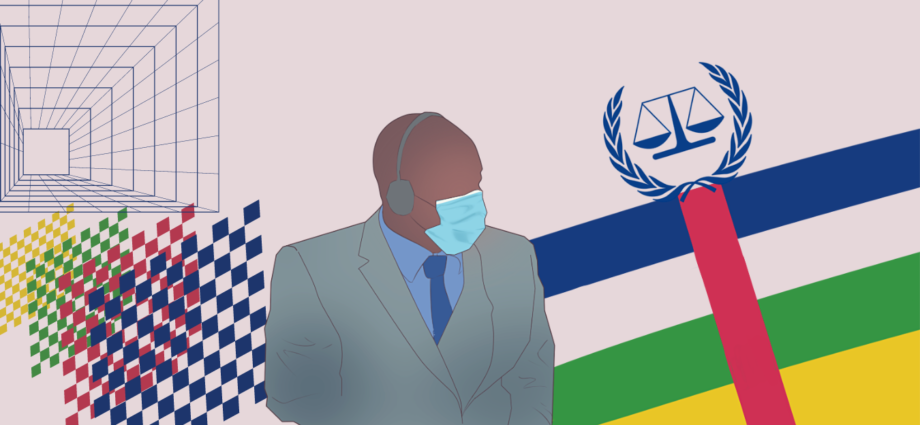Written by Joanna Sowińska
Following the Central African Republic (CAR) inability to conduct an investigation on war crimes and crimes against humanity, the trials at International Criminal Court (ICC) in the Hague are still ongoing. Vague statements on defence plans from the Defence Council however bring instability to the resolution of the case.
Mahahamat Saïd Abdel Kani, the commander of Central African rebels – the Séléka – was arrested on January 7th 2019 for alleged war crimes and crimes against humanity committed in CAR, including inhumane prisoners detentions and rape, among other alledged crimes.
Background Information
After its independence in 1960, CAR, which is currently classified as the second poorest country in the world, was exposed to tremendous instability and decades of violence by insurgent groups.
One of the most prominent insurgent groups – the Seleka – a primarily Muslim coalition of armed groups led by Said, launched a violent offensive against the government, which ultimately resulted in ousting Francois Bozizee, the CAR’s president in 2013.
The weakening of the country’s security infrastructures resulted in the enhancement of ethnic tensions; notably with another insurgent group – the “Anti-Balaka”, a coalition of Christian fighters targeting Seleka fighters.
The conflict inevitably transformed into a bloody religious conflict – religion being first absent as a violence factor before the emergence of insurgency groups – later resulting in the torture, killing and displacement of thousands of people.
The beginning of the trial has driven important debates on the accuracy of events and the alleged people involved – as Séléka fighters opposing the ‘Anti-Balaka’ – added complexity to the understanding of truth.
Saïd’s arrest and the intervention of the ICC to establish justice, is nevertheless a remarkable turn in a country that was unable to effectively make use of its national tribunals, increasing the case’s relevance on the international scene.
Disputed power of the ICC over the CAR case
“The ICC is about war crimes. And for this you have to establish a conflict. Now experts believe that there was no conflict at CAR, which means no crime, so no reason to be at the ICC” claims Jennifer Naouri, the defence lawyer of Saïd at the ICC, during Tuesday’s press conference.
Crisis Group, an independent, non-profit NGO disagrees, claiming that the dismantling of the government through the intervention of heavily armed forces, resulting in the torture, killing and displacement of thousands of people constitutes enough evidence to consider it a conflict.
The assumed non-occurrence of war crimes also does not exclude the possibility of crimes against humanity – an element Naouri failed to mention at the press conference.
Indeed, the evidence of detained Anti-Balaka prisoners by Séléka armed groups proves that crimes against humanity might have occurred – as stated by the prosecutors in charge of the case.
Among the prosecutors is Karim Khan, who denounces the conditions under which the detention took place, characterised by small, dark detention cells, smushed with faeces – under the floor of what appeared as Saïd’s office.
Naouri claims that “she believes in justice and that everyone has the right to defence.” She refused to comment on whether she believes her client Saïd is guilty, although she has advised him to plead ‘not guilty’.
ICC as the new hope for CAR
Unable to conduct an investigation, CAR authorities sent a referral to the ICC Prosecutor in 2014 regarding the allegedly committed crimes since 2012.
A wise decision according to Enrica Picco, an Africa expert and director of Crisis Group.
Although the national court in Bangui has undertaken some action, such as sentencing three militia men for war crimes and crimes against humanity this October 31st, the judiciary in the country is unstable according to Picco.
“This trial is merely symbolic as impunity remains widespread and the country’s elites are untouchable”, tweets Picco.
A recent incident undermining CAR’s Constitutional Court was the forced replacement of its president.
“She [Former CAR’s Constitutional Court President] has bravely defended the constitution against powerful interests on multiple accounts” states Tim Glawion, the editor-in-chief of Africa Spectrum, an academic journal publishing on African issues.
The external relations adviser from the office of the prosecutor comments that the ICC underwent some “revolutionary work” with increased cooperation from the beginning of the war in Ukraine, that results in more perpetrators “seeing their day in court” – making it a good alternative for solving issues in CAR.
Despite the uncertainties brought up by Saïd’s defence lawyers, the newest developments at the ICC should be seen as a hope for CAR to condemn alleged rebellious groups.
Edited by Margaux Marzuoli, artwork by Teresa Valle

